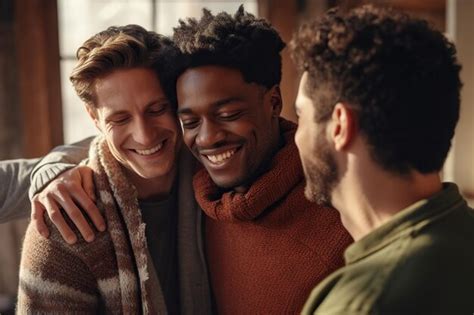The Unspoken Burden: Emotional Stoicism in Male Friendships
Close friendships are the bedrock of human connection, offering support, camaraderie, and a sense of belonging. While these bonds are essential for men, they are often navigated through a labyrinth of unspoken rules and expectations. Among these, one stands out as particularly pervasive and impactful: the implicit pressure to maintain emotional stoicism and refrain from openly sharing deep personal vulnerabilities or struggles with male friends.
This isn’t about hiding superficial annoyances or everyday stresses, but rather a profound reluctance to reveal fears, insecurities, anxieties, or profound sadness that lie beneath the surface. It’s the expectation that a man should ‘handle his own problems,’ ‘be strong,’ and ‘not burden others’ with his emotional turmoil, even among his closest confidantes.

The Roots of Stoicism
This unwritten rule doesn’t emerge from malice or a lack of care; rather, it’s often deeply ingrained in societal expectations of masculinity. From a young age, boys are frequently taught to suppress ‘feminine’ traits like emotional expressiveness, encouraged to be self-reliant, resilient, and uncomplaining. The ideal man is often portrayed as a protector, a provider, and someone who can withstand hardship without showing weakness.
This cultural conditioning creates a powerful internal script. Men fear that expressing vulnerability might be perceived as a sign of weakness, an inability to cope, or even a challenge to their masculine identity. The concern isn’t just about how others might view them, but also how they might perceive themselves.

The Impact on Male Friendships and Well-being
While stoicism might offer a temporary sense of control, its long-term effects can be detrimental. In friendships, it can lead to a lack of genuine intimacy and depth. When profound emotional experiences are kept hidden, the full spectrum of connection remains untapped. Friends might engage in shared activities, humor, and surface-level conversations, but the absence of true emotional disclosure can leave both parties feeling unfulfilled or even isolated.
More critically, this unwritten rule can have significant implications for men’s mental health. Suppressing emotions doesn’t make them disappear; it merely forces them underground, where they can fester, contributing to increased stress, anxiety, depression, and even anger. Without a trusted outlet, men may struggle in silence, unable to access the very support networks that are theoretically available to them.

Breaking the Cycle: Fostering Deeper Connections
Challenging this unwritten rule requires a conscious effort from both individuals and society. For men, it means recognizing that vulnerability is not a weakness but a strength—a pathway to genuine connection and resilience. It involves taking small, courageous steps to share personal struggles with trusted friends, starting with topics that feel less intimidating and gradually building trust.
For friends, it means actively creating safe spaces where such sharing is welcomed and reciprocated. This includes practicing active listening, validating emotions without judgment, and reciprocating with appropriate levels of personal disclosure. It also involves understanding that many men haven’t been taught how to express or even identify their emotions effectively, and patience is key.

Ultimately, by dismantling the expectation of emotional stoicism, men can cultivate friendships that are not only fun and engaging but also deeply supportive, nurturing, and genuinely fulfilling. This shift can lead to improved mental well-being, stronger bonds, and a more authentic expression of masculinity that embraces the full spectrum of human experience.




